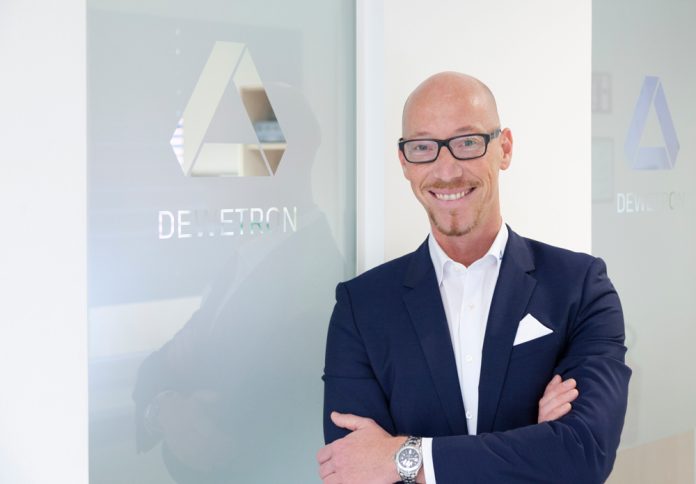How Wharton Executive Education gave one European entrepreneur the business skills to launch his company
After more than 20 years in R&D management positions – the last eight as chief technology officer and member of the board – Jürgen Götzenauer, PhD started his own advisory company earlier this year.
Such a move might be unremarkable in the United States, where almost 14 percent of those who are working age are running their own businesses, according to the Global Entrepreneurship Monitor (GEM) study. But the average for the European Union is just over 7 percent, and according to the European Commission, only 37 percent of Europeans would like to be self-employed (as opposed to 51 percent of Americans).
But the EU numbers are on their way up: Götzenauer has joined a growing number of European entrepreneurs who have left the corporate world to go solo. According to the GEM report, societal attitudes about entrepreneurship in the EU are becoming more positive and startup funding is increasing.
With degrees in computer science and business administration, Götzenauer had knowledge of most of the disciplines that comprise a business (a clear advantage over those with more limited experience). But he decided he needed more. “My background is as a technician, so I always saw the business from that perspective,” he says. “When I was CTO, I had to broaden my view. I needed to be competent discussing finance, marketing, and strategy and I wanted to learn from the best sources available.”
Götzenauer says in addition to gaining that broader view, what he learned while gaining his MBA needed an update because the business world is changing so quickly. He started researching his options and found the General Management Program (GMP) at the Wharton School of the University of Pennsylvania in the United States. “I enrolled in the General Management Program because Wharton is the best school to help move from a technical manager to someone with true general management expertise,” he says.
Entrepreneurs’ need for this kind of expertise, research shows, is very real. In fact, a number of studies of both successful and failed startups show that “leadership with general and domain-specific business knowledge” was a requirement for success. It turns out a large number of entrepreneurs take huge risks – both to themselves and their investors – without solid grounding in what it takes to run a business.
That’s where Wharton’s General Management Program comes in. It requires participation in six week-long courses: one each in finance, leadership, marketing, and strategy or innovation, plus two electives, over two years. Götzenauer says the flexibility of the curriculum was important: “There are so many programs offered that it is easy – even with a 14,000 kilometer commute – to create a schedule to complete them all in two years.”
But with the business world’s speed of change, as Götzenauer notes, the need to refresh knowledge and skills is ongoing. Once the General Management Program has been completed, participants are awarded alumni status, making them part of a global Wharton network with more than 98,000 members. Hundreds of Lifelong Learning events for alumni are held around the globe each year. They include Global Forums, webinars, and tech-based chats on topics such as data analytics, alternative investments, and the science of startups.
Expert Faculty
Wharton’s programs provided what Götzenauer calls “a true Ivy League academic experience. You are taught by the top professors in their fields, and the amount of knowledge they share is really impressive. You are with them for a short period of time but they are able to cover so much content.”
He says after a week attending a course at Wharton called Finance and Accounting for the Non-Financial Manager, he flew back to Austria understanding all of the high-level finance topics needed for a top management position. “It was the same for marketing, organizational behavior, and innovation,” he adds. “Every program stands out because of the faculty and the comprehensive content.”
A highlight of the experience was learning from Wharton Management Professor Nicolaj Siggelkow, a protégé of strategy guru Michael Porter. “In my strategy and marketing classes in Austria, we studied Michael Porter by reading. At Wharton, I learned from the source. The biggest takeaway from Nicolaj’s Strategy and Management for Competitive Advantage course is gaining a more holistic view. His way of looking at it as a set of integrated activities was very impressive and completely changed my view about what strategy is.”
Although Götzenauer wrote his dissertation on innovation, he was eager to take the Mastering Innovation class as part of the General Management Program’s curriculum. Led by professors Christian Terwiesch and Karl Ulrich, who are also co-authors of the book called Innovation Tournaments, the Mastering Innovation course at Wharton shows participants how to apply a structured, process-driven approach to innovation – a radical departure from the standard “let’s hope for a spark of genius” method. In previous runnings of the course, executives visited startups and high-growth companies in California’s Silicon Valley, learning from their successes and challenges in fast-growing and highly competitive markets.
Strategic Marketing for Competitive Advantage was another course at Wharton that Götzenauer found illuminating for its innovative approach. Non-marketers develop a solid grounding based on strategy rather than tactics. It differs greatly from much of today’s marketing advice and hype that focus on topics such as enticing consumers with influencers and interacting with them through AI chatbots and social media platforms. The course is taught by the same professors who teach in Wharton’s MBA program: experts in customer analytics, pricing, competitive strategy, communication, contagion and viral marketing, and branding.
Connections that Count
Götzenauer says a highlight of his Wharton Executive Education experience was meeting and working with successful leaders from around the world. Because acceptance requires at least 10 years of managerial experience and leadership responsibilities, plus significant career achievement, the program draws top talent from a broad range of industries, roles, and geographies.
By attending six individual programs, the number of connections and networking opportunities is substantial. “Everyone I met was high level, and they were very diverse in terms of geographies, industries, and functions. I would not have been able to grow my international network to include people in medicine and law, for example,” says Götzenauer.
That network is already paying dividends. “I am working with someone from Washington DC who I met in the Strategic Marketing program,” he says. “I told him I was starting my own business, and luckily enough he had made the same decision. We decided to stay in touch. Now when a company from the US wants to extend its business to Germany or Austria, he reaches out to me. When I have a client looking to move into the US market, or to cooperate with US companies, he has the network I need. This has been a huge benefit of the GMP1 for both of us.”
Developing an Entrepreneur’s Mindset
Leaving a senior role in an established firm ultimately takes more than classroom knowledge and skills. Götzenauer says he had considered going out on his own “for years,” but he wasn’t ready to take the risk. “When I was in Silicon Valley with the Mastering Innovation program, seeing all of the startup activity there, I realized if I really wanted to be an entrepreneur, I was going to have to change my mindset.”
Today, Götzenauer is a management consultant, focusing on supporting high-tech companies in product development and innovation, and working with potential investors on tech ratings and software due diligence. He credits attending Wharton with helping him make the change. “I knew by the end that I had the tools, knowledge, experience, and network I needed. Over two years, Wharton gave me the confidence to see risk taking differently. I was ready.”
For more information, visit: WhartonGMP.com




































